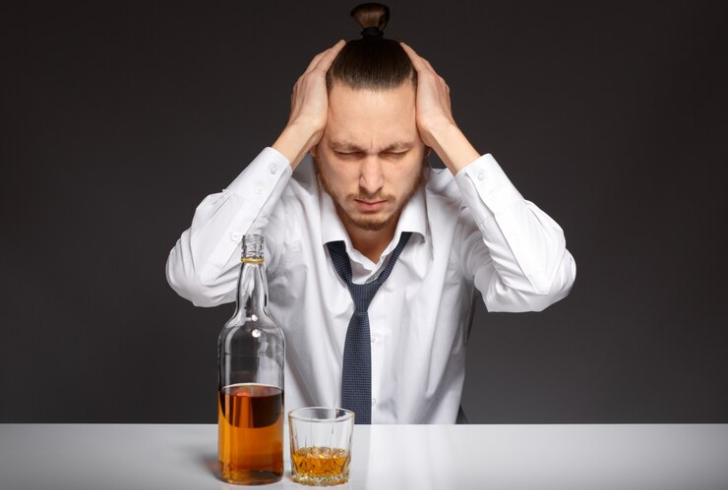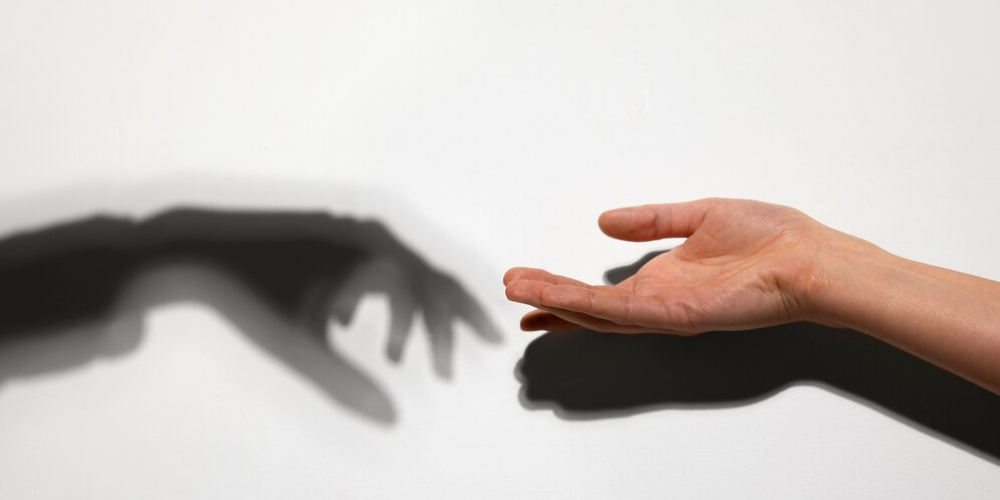The link between alcohol and mental health is undeniable. Many people use alcohol as a way to celebrate, unwind, or temporarily escape stress. However, the question remains - does alcohol cause depression? While some may drink to relax or feel more confident, the effects are often fleeting.
As the alcohol wears off, the brain and body experience withdrawal symptoms, which can worsen emotional well-being. Over time, heavy drinking can contribute to depression, anxiety, and other mental health challenges.
The Effects of Alcohol on the Brain

Freepik | lyashenko | Alcohol abuse depletes neurotransmitters, fueling anxiety and depression.
Alcohol is classified as a depressant, meaning it interferes with the brain’s natural chemical balance. It specifically disrupts neurotransmitters, which are responsible for regulating mood, thoughts, and behavior.
Initially, drinking can make people feel less inhibited, more confident, or even euphoric. But these effects are short-lived. Once the alcohol leaves the system, it often leads to feelings of sadness, anger, or anxiety, regardless of the person’s mood before drinking. Additionally, alcohol slows down cognitive processes, making it harder to process emotions or foresee the consequences of actions.
Prolonged alcohol use can deplete the neurotransmitters that help combat anxiety and depression. This imbalance creates a cycle where individuals may drink more to manage difficult emotions, only to worsen their mental state in the long run.
Alcohol’s Impact on Physical Health
The physical effects of heavy drinking extend far beyond mental health. In the short term, excessive alcohol consumption can lead to migraines, upset stomachs, sleep disturbances, and even alcohol poisoning. People under the influence may act recklessly, increasing their chances of accidents, injuries, or violent encounters.
Long-term alcohol misuse carries even more serious risks. Chronic drinking has been linked to conditions like liver disease, high blood pressure, stroke, and various cancers. The physical toll often overlaps with social consequences, such as strained relationships, job loss, or financial difficulties. These challenges, in turn, further strain mental health, creating a vicious cycle of stress and alcohol dependency.
Connection Between Alcohol and Mental Health
Research shows a strong link between alcohol use and mental health conditions. People who drink heavily are at a higher risk of developing mental illnesses, while those with pre-existing mental health issues are more likely to misuse alcohol. This dual relationship is often explained by the concept of self-medication, where individuals turn to alcohol to numb emotional pain or cope with symptoms.
Alcohol and Depression
One of the most notable links is between alcohol and depression. Regular heavy drinking can lead to or worsen depressive symptoms. For individuals already struggling with depression, alcohol often exacerbates their condition. The good news is that many people report significant improvements in their mood within weeks of reducing or stopping alcohol consumption.
It’s important to note that drinking while on antidepressants can be particularly dangerous. Alcohol can interfere with the effectiveness of medication and intensify side effects. This combination often complicates recovery and may increase the risk of relapse.
Alcohol and Anxiety
While alcohol may temporarily reduce feelings of anxiety, this relief is often misleading. As its effects fade, anxiety frequently returns stronger than before. Over time, people may require larger amounts of alcohol to achieve the same calming effect, leading to dependence.
Additionally, hangovers commonly increase feelings of anxiety, leaving individuals feeling restless or uneasy the day after drinking. For those dealing with anxiety, exploring alternatives like yoga, meditation, or light physical activity may provide healthier and more sustainable coping mechanisms.
Alcohol and Suicidal Behavior
Alcohol’s ability to lower inhibitions and increase impulsivity makes it especially dangerous for those struggling with suicidal thoughts. Heavy drinking has been linked to a higher likelihood of self-harm or suicide attempts. For anyone experiencing such feelings, reaching out to a trusted resource like Samaritans or emergency services can make a critical difference.
Recognizing Problematic Drinking
To reduce the risks associated with alcohol, government guidelines suggest limiting consumption to no more than 14 units per week for both men and women. This amount equates to about six medium glasses of wine or six pints of beer. Exceeding this limit regularly increases the likelihood of developing both physical and mental health problems.
Recognizing when alcohol use has become problematic is a vital first step. Common signs include relying on alcohol to cope with stress, feeling unable to control drinking habits, or noticing the negative impact of alcohol on relationships and daily life.
Strategies to Cut Back on Alcohol
For those looking to reduce alcohol intake, small changes can make a significant difference. Avoiding situations where drinking is expected, such as pub gatherings, can help minimize temptation. Instead, explore alternative social activities that don’t involve alcohol, like trying a new hobby, going to the gym, or visiting a museum.
Setting clear limits on how much to drink and planning alcohol-free days during the week can also create healthier habits. Sharing goals with supportive friends or family members ensures accountability and encouragement along the way.
When Professional Help Is Needed
In cases of alcohol dependency, quitting without medical supervision can be harmful. For anyone physically dependent on alcohol, consulting a doctor is essential. Healthcare professionals can assess physical health, provide withdrawal management options, and recommend support services tailored to individual needs.
For those facing both mental health challenges and alcohol misuse, a “dual diagnosis” may be given. This ensures that treatment addresses both conditions simultaneously, often led by mental health specialists.
Alternatives to Drinking for Emotional Well-Being

Freepik | Swapping alcohol for healthier coping methods boosts mental and physical well-being.
Replacing alcohol with healthier coping mechanisms can help improve both mental and physical health. Engaging in activities that reduce stress and promote relaxation is a great starting point. Options include:
1. Practicing mindfulness or meditation to reduce negative thoughts.
2. Joining fitness classes or starting an outdoor activity like jogging or cycling.
3. Pursuing creative hobbies such as painting or writing to channel emotions.
4. Seeking out social support groups for motivation and shared experiences.
By focusing on activities that bring joy or provide a sense of accomplishment, individuals can begin to break the cycle of alcohol dependency while fostering a more positive mindset.
Does Alcohol Cause Depression?
So, does alcohol cause depression? While it may not be the sole cause, heavy drinking is a significant contributor. By disrupting brain chemistry, intensifying emotional challenges, and creating dependency, alcohol can lead to or worsen depression and other mental health issues.
Reducing alcohol consumption or seeking professional support can have life-changing benefits. With the right resources and mindset, it’s possible to build a healthier relationship with alcohol and create a more balanced lifestyle.










